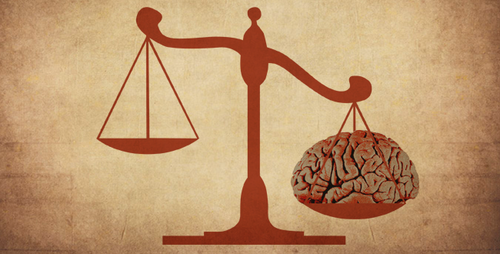The General Public is Neutral on “Neurolaw”
Main Article Content
Abstract
Over the last ten years, much has been written about the intersection of neuroscience and law and how it may lead us to re-conceptualize punishment and blame. So for all its promises and controversies, it is interesting that a new study suggests people are “generally neutral in [their] support for neuroscience-based legal reforms” (Shen & Gromet 2015 86). This support, though, is not static, and depending on the frame, wavers along partisan lines.
Noting that “political science perspectives have been noticeably absent” in the “neurolaw” literature (87), the authors set out to study how different framings influence public approval. Incorporating their survey into a national omnibus poll (N = 1,010), they offered subjects one of three frames: the first characterized neurolaw as a means for enhancing punishment, the second as a means for diminishing it. (The third was a control). These first two they called prosecution and defense frames, respectively:
[Prosecution] “Thinking about how prosecutors may use neuroscientific evidence to show that criminal defendants deserve lengthy prison sentences, do you disapprove or approve of legal reforms based on advances in neuroscience” (92)?
[Defense] “Thinking about how defense lawyers may use neuroscientific evidence to show that criminal defendants deserve reduced sentences, do you disapprove or approve of legal reforms based on advances in neuroscience” (92)?
What Shen and Gromet found is that while the general attitude toward neurolaw is neutral, “Republicans’ approval of [it] decreases when neuroscience is seen as primarily serving to reduce offender culpability, whereas Democrats’ approval is unaffected by how neurolaw is framed” (86). For scholars and activists this means “the interaction of partisanship and framing can influence approval of neurolaw, particularly with regard to the use of brain science to help defendants receive less severe punishment” (95).
This study is not without its weaknesses (some of which they discuss), but most problematic for me is that the poll was conducted in May 2011 – four years ago. Since then there have been a handful of popular science books, documentaries, and focusing events (e.g. the mental health of mass shooters), each of which have likely had some effect on public opinion. My intuition is that, today, the public is less neutral than this study suggests; but if the authors are correct, still, we cannot presume this neutrality will last forever. Within a few years’ time neurolaw may be as politically polarizing as climate change or the teaching of evolution in public schools. And as with those, the framing that prevails will dictate the policies that follow.
References:
Shen, Francis X., and Dena M. Gromet. 2015. Red states, blue states, and brain states: Issue framing, partisanship, and the future of neurolaw in the United States. The Annals of the American Academy of Political and Social Science 658 (1): 86-101.

